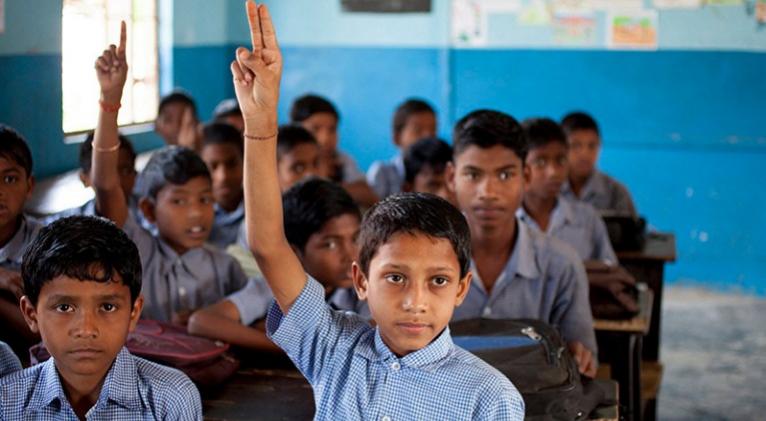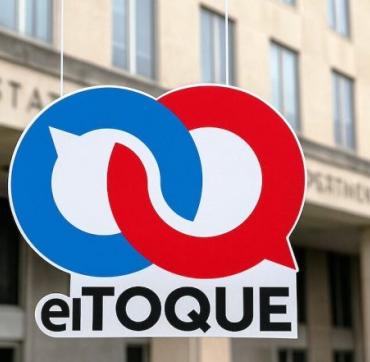Why is India dropping evolution and the periodic table from school science?
especiales

“To develop the scientific temper, humanism and the spirit of inquiry and reform.”
These words were crafted in 1976 in an amendment to India’s constitution. The constitution’s writers rightly saw the pursuit of evidence, reasoning and humanity as the responsibility of every citizen as India emerged from arguably the most tumultuous period in its history since gaining independence from Britain nearly three decades earlier.
But those attributes now seem to be less valued, at least by those involved in setting the country’s education policies. A series of changes to school science teaching have resulted in the deletion of the periodic table, explanations of evolution and electromagnetism, and discussions about the sustainable use of natural resources from the textbooks used by children aged 14–16.
These and other topics were removed from the curriculum last year to help lighten students’ workloads during the COVID-19 pandemic. But they have now been removed from textbooks, too. The National Council of Educational Research and Training (NCERT), the government-funded but operationally autonomous body tasked with producing India’s textbooks, has not discussed the changes — which will affect more than 38 million children — with parents, teachers or researchers. Those who study science education have told Nature that they’re baffled, not least by the lack of any engagement.
Pride in India
NCERT says that ‘rationalization’ is needed when content overlaps with material covered elsewhere in the curriculum, or when it considers content to be irrelevant. Moreover, India’s 2020 National Education Policy says that students need to become problem-solvers and critical thinkers, and it therefore advocates less memorization of content and more active learning.
Indian scientists shocked as government scraps nearly 300 awards
NCERT also wants “a rootedness and pride in India, and its rich, diverse, ancient and modern culture and knowledge systems and traditions”. Some people interpret this as a motivation to remove the likes of Charles Darwin and Michael Faraday, and instead use the time to learn more about India’s precolonial history of science.
India is not the only postcolonial country grappling with the question of how to honour and recognize older or Indigenous forms of knowledge in its school curricula. New Zealand is trialling the teaching of Māori ‘ways of knowing’ — mātauranga Māori — in a selection of schools across the country. But it is not removing important scientific content to accommodate the new material, and for good reason.
The process of evolution by natural selection and the principles underlying the periodic table are both fundamental concepts that explain — and encourage students to wonder about — the world at large. Life, in all its magnificent permutations and combinations, is the product of evolutionary processes. Meanwhile, a surprisingly small set of chemical elements form the building blocks of our physical world. How and why these two realms are the way they are can be traced back to lessons set out in conceptual frameworks that NCERT has axed.
Alternative methods
Moreover, there’s a great deal of literature and teaching practice that outlines how scientific concepts can be taught using visual methods, such as videos and animation, instead of by rote learning. An alternative is to embed concepts using non-fiction narrative storytelling. In the case of the periodic table, this would involve detailing how individual elements found their places in the table; the highs and lows, dramas and inflection points as researchers sought to get to the truth and be recognized for their achievements.
India pledges $4 billion for green energy to cut carbon emissions
Learning core scientific concepts, practising problem-solving and delving deep into the history of science — both local and global — needn’t be done in isolation. The development of a scientific temperament and pride in heritage can go hand in hand. As we have written in these columns before, research does not advance without a firm grasp of what came before. In short, science and history complement each other.
Researchers who study India’s education policy have told Nature that organizations that are critical of science are advocating for or influencing these changes to textbooks. They point to one organization in particular: the Rashtriya Swayamsevak Sangh, which has close ties to the ruling Bharatiya Janata Party.
NCERT does, of course, need to listen to opinions from the full community spectrum. But, as an autonomous body, it must be free to make its own decisions, and should always do so on the basis of the best available evidence. Public confidence in its decisions will be helped if it engages with all users: pupils, teachers, parents and researchers. Not doing so fuels all kinds of speculation, some of which might not be accurate.
NCERT needs to end its vow of silence. Few people would take issue with its ambition to boost critical thinking and promote learning by doing, or with its desire for students to enjoy their education. Both can go hand-in-hand with exploring India’s rich pre- and postcolonial history of discovery and innovation.














Add new comment